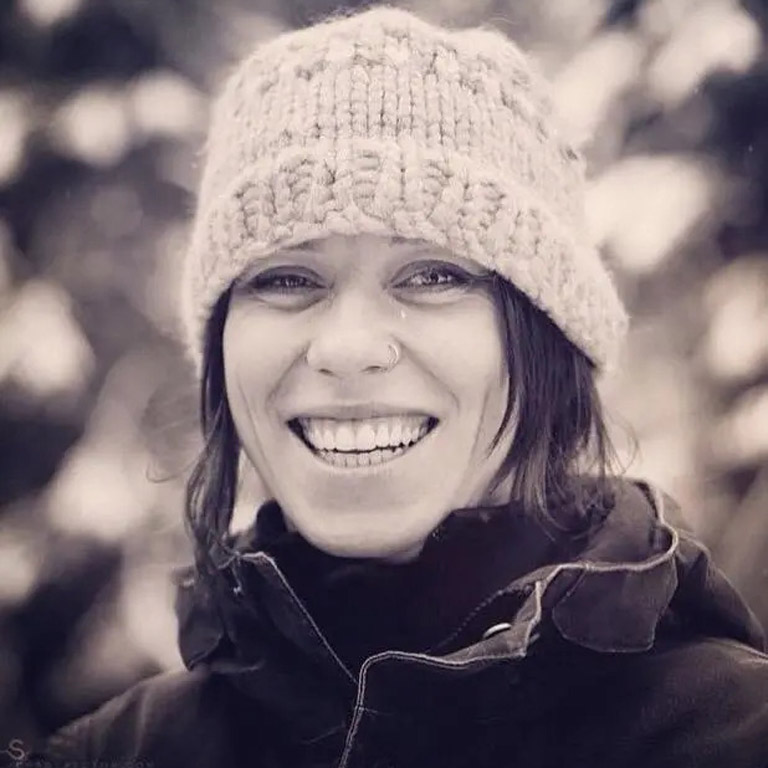Dr. Christy Sutherland, a family physician working on the Downtown Eastside, is garnering a strong reputation for her work with addiction medicine. She is the among the first doctors in North America to prescribe a new form of medication, liquid hydromorphone, broadening the clinical help available for those suffering from addictions.
As the Medical Director for the Portland Hotel Society, Dr. Sutherland’s focus is helping vulnerable people on the DTES with their addictions. She received her MD at Dalhousie University before completing her Family Medicine Residency at UBC in 2010. She’s been working with the Portland Hotel Society for eight years, and working as the medical director for the past five years. Her work with the opioid-expansion program has attracted the attention of the College Family Physicians of Canada (CFPC), who recently awarded her with the Reg L. Perkins award, acknowledging her as the BC Family Physician of the Year.
For Sutherland, working in addiction medicine is rewarding, allowing her to help at-risk patients in multiple ways.
“The world is set up in this way that makes this vulnerable population even more marginalized and causes them more harm. It’s lovely to be a physician in this area because there is so much work to do to help change the system to make it more safe for people who are vulnerable,” said Dr. Sutherland in a phone interview.
Providing safe spaces for her patients – especially women – is something that is fundamental to Dr. Sutherland’s practice. It is often women who are at a greater risk of contracting diseases through IV use due to gender-based biases. As Dr. Sutherland says, women are “often second to the needle,” meaning that a man will obtain the drugs, cook the drugs, and inject himself before offering the used needle to his female companion.
“In that moment, she is not safe to [ask]: ‘Can you change the needle?’ Because she is afraid of being assaulted, she is afraid he is not going to give her these drugs and that she will have heroin withdrawals. She is in an unsafe circumstance, so she is actually making the less risky choice in that moment in order to continue to survive.”
Using what has been coined as “risk environment framework,” Dr. Sutherland tries to account for the complex circumstances her patients come from, including the trauma they may have experienced and the work they may have to participate in, in order to survive.
“Women who are doing survival sex work are negotiating out of car windows or they’re in an alley, they don’t have much time to assess their safety before they engage in that transaction and so what I worry about is their safety, and if they are safe to ask if they can use condoms,” explained Dr. Sutherland.
“You want women to feel safe and not judged and welcome in your clinical practice and to have them know that you want to hear about these complex things that are going on in their life and that I’m not going to judge them.”
The work Dr. Sutherland has been doing on the opioid-expansion program is what caught the eye of the College of Family Physicians of Canada. The program looks at other medications and prescriptions for people who are going through addiction problems and withdrawals. Traditionally, methadone was the only medicine used to help patients in these situations, but Dr. Sutherland is working to prescribe other types of oral medications.
“We can’t expect each person to respond to the same treatment,” she said. “It’s so [wonderful] having different oral options to offer people.”
Along with other oral medications, she is also able to offer patients a liquid hydromorphone, which is a “high-powered opioid” that is injected under the supervision of a nurse. Dr. Sutherland says this helps “replace their illicit drug use.”
“Some people, just with how vulnerable they are and how long they have been using and what their brain is used to, aren’t able to stabilize under oral treatment so it’s so wonderful to be able to offer them an injectable formulation that they can have and it can greatly reduce their illicit opioid use and sometimes, totally eliminates it,” she said.
Through her work with the opioid-expansion program, Dr. Sutherland was the first physician in North America to prescribe this type of medicine outside the context of research and has already seen the benefits of the program in some of her patients. She said the appointments with many of her patients that have tried this new method have turned into catch up sessions, where she gets updated on their life because they are no longer dependent on opioid use.
“We ask what they are doing with their free time now. Or what they are doing with their money now that they don’t have to spend it on drugs. So, they are reconnecting with family, figuring out what hobbies they like and buying a bike. All kinds of nice things that they have been missing out on because of their addictions.”
Currently, Dr. Sutherland is working with the BC Center on Substance Use (BCCSU) to create a Canadian guideline for the new liquid hydromorphone prescription, allowing other cities and provinces to use the program. Alberta and Ontario have already started using this program for addiction medicine. To her, the recognition with the Reg L. Perkin award from the CFPC is not only a celebration of family medicine but also a celebration of harm reduction.
“I’m so appreciative to our national body to recognize harm reduction as part of primary care.”




